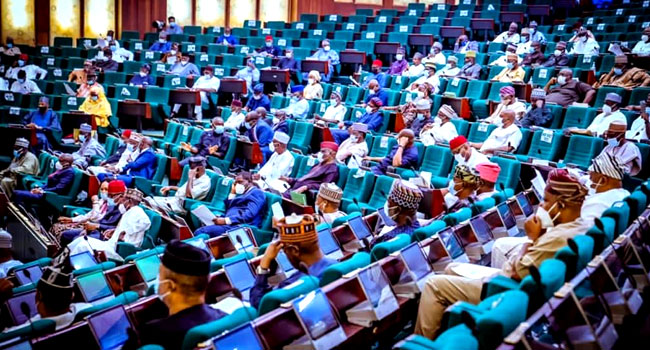By Milcah Tanimu
The House of Representatives, on Wednesday, March 6, urged for the adoption of living wages for Nigerian workers, reflecting current economic conditions globally.
Directing its relevant committees on Labour and Employment, Finance, and National Planning, the House mandated the development of frameworks to ensure Nigerian workers are remunerated adequately in line with economic realities.
This resolution followed a motion presented by the Minority Leader of the House, Kingsley China, supported by 37 other members. It was agreed to transmit this resolution to the Senate for concurrence.
In response to escalating inflation rates impacting the affordability of basic necessities, Deputy Minority Leader Aliyu Sani Madaki highlighted the necessity for just and favorable remuneration for all workers.
Quoting Article 23 of the United Nations Universal Declaration of Human Rights, Madaki emphasized the right to a decent standard of living. He underscored that achieving key Sustainable Development Goals (SDGs) by 2030 relies on implementing living wages.
Madaki stressed that recent palliative measures introduced by the federal government, following the removal of fuel subsidies in May 2023, have been insufficient to offset rising living costs.
Despite recent adjustments to the minimum wage, Madaki emphasized that the purchasing power of workers remains low due to continuous inflation and currency depreciation. He referenced a pre-subsidy removal report by Trade Economics in 2018, suggesting monthly living wage standards.
Madaki asserted that no worker can sustainably survive on less than N100,000 monthly in the current economic climate. He cited a World Bank report indicating that high inflation rates have exacerbated poverty levels nationwide.
Recalling a statement by the Speaker of the House in September 2023, Madaki emphasized that only the implementation of living wages can alleviate the prevailing insecurity and corruption in Nigeria.
He warned that without prompt and effective measures to enhance the income of Nigerians, the country will witness a surge in poverty and disillusionment with the government.

